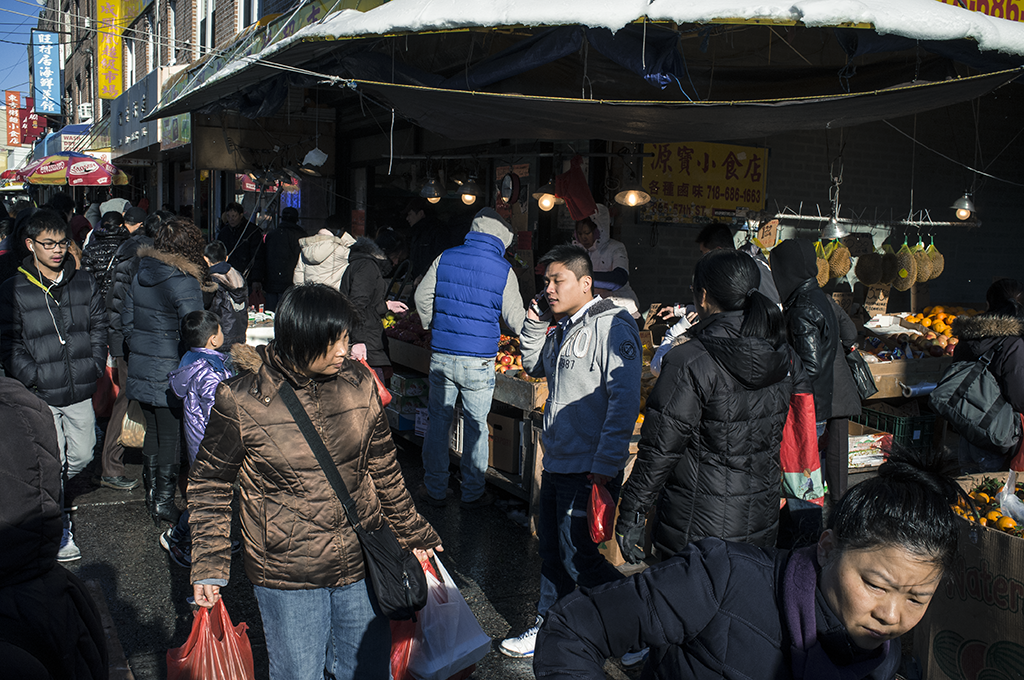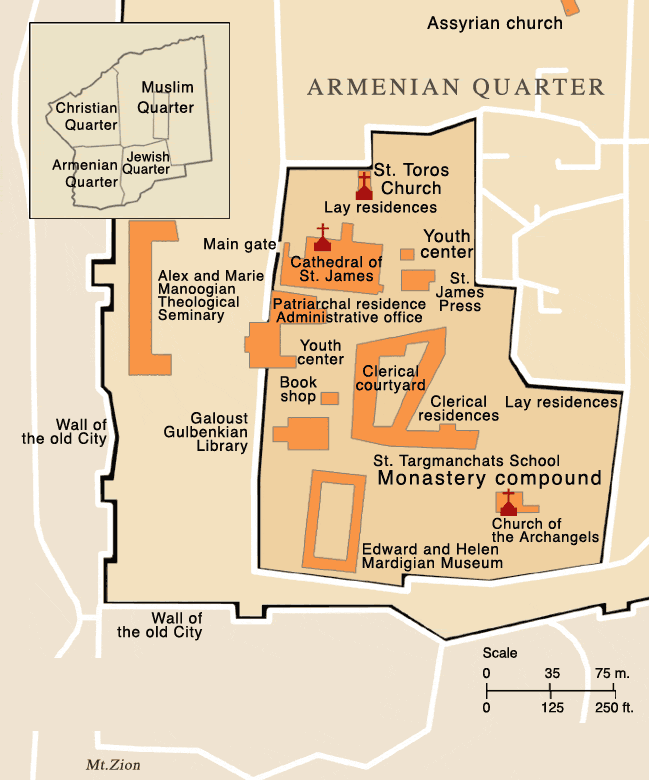|
Ethnic Enclaves
In sociology, an ethnic enclave is a geographic area with high ethnic concentration, characteristic cultural identity, and economic activity. The term is usually used to refer to either a residential area or a workspace with a high concentration of ethnic firms.Portes, Alejandro, and Leif Jensen. "Disproving the Enclave Hypothesis: Reply." ''American Sociological Review''. Vol. 57. no. 3 (1992): 418-420. Their success and growth depends on self-sufficiency, and is coupled with economic prosperity. Douglas Massey describes how migrant networks provide new immigrants with social capital that can be transferred to other tangible forms.Massey, Douglas S. (1990). The Social and Economic Origins of Immigration. The ANNALS of the American Academy of Political and Social Science, 510(1), 60–72. https://doi.org/10.1177/0002716290510001005: pp. 60. As immigrants tend to cluster in close geographic spaces, they develop migrant networks—systems of interpersonal relations through which p ... [...More Info...] [...Related Items...] OR: [Wikipedia] [Google] [Baidu] |
Binondo
Binondo (; ) is a district in Manila and is referred to as the city's Chinatown. Its influence extends beyond to the places of Quiapo, Manila, Quiapo, Santa Cruz, Manila, Santa Cruz, San Nicolas, Manila, San Nicolas and Tondo, Manila, Tondo. It is the oldest Chinatown in the world, established in 1594 by the Spaniards as a settlement near Intramuros but across the Pasig River for Catholic Chinese; it was positioned so that the colonial administration could keep a close eye on their migrant subjects. It was already a hub of Chinese commerce even before the Spanish colonial period. Binondo is the center of commerce and trade of Manila, where all types of business run by Chinese Filipinos thrive. Noted residents include Saint Lorenzo Ruiz, the Filipino protomartyr, and Venerable Mother Ignacia del Espiritu Santo, founder of the Congregation of the Religious of the Virgin Mary. Etymology Numerous theories on the origin of the name "Binondo", and that of "Tondo", its neighborin ... [...More Info...] [...Related Items...] OR: [Wikipedia] [Google] [Baidu] |
Armenian Quarter
The Armenian Quarter (, ; , ''Harat al-Arman''; , ''Ha-Rova ha-Armeni'') is one of the four sectors of the walled Old City of Jerusalem. Located in the southwestern corner of the Old City, it can be accessed through the Zion Gate and Jaffa Gate. It occupies an area of 0.126 km² (126 dunam), which is 14% of the Old City's total. In 2007, it had a population of 2,424 (6.55% of Old City's total). In both criteria, it is comparable to the Jewish Quarter. The Armenian Quarter is separated from the Christian Quarter by David Street (Suq el-Bazaar) and from the Jewish Quarter by Habad Street (Suq el-Husur). The Armenian presence in Jerusalem dates back to the 4th century CE, when Armenia adopted Christianity as a national religion and Armenian monks settled in Jerusalem. Hence, it is considered the oldest living diaspora community outside the Armenian homeland. Gradually, the quarter developed around the St. James Monastery—which dominates the quarter—and took its moder ... [...More Info...] [...Related Items...] OR: [Wikipedia] [Google] [Baidu] |
Investment
Investment is traditionally defined as the "commitment of resources into something expected to gain value over time". If an investment involves money, then it can be defined as a "commitment of money to receive more money later". From a broader viewpoint, an investment can be defined as "to tailor the pattern of expenditure and receipt of resources to optimise the desirable patterns of these flows". When expenditures and receipts are defined in terms of money, then the net monetary receipt in a time period is termed cash flow, while money received in a series of several time periods is termed cash flow stream. In finance, the purpose of investing is to generate a Return (finance), return on the invested asset. The return may consist of a capital gain (profit) or loss, realised if the investment is sold, unrealised capital appreciation (or depreciation) if yet unsold. It may also consist of periodic income such as dividends, interest, or rental income. The return may also inclu ... [...More Info...] [...Related Items...] OR: [Wikipedia] [Google] [Baidu] |
Residential Area
A residential area is a land used in which housing predominates, as opposed to industrial and commercial areas. Housing may vary significantly between, and through, residential areas. These include single-family housing, multi-family residential, or mobile homes. Zoning for residential use may permit some services or work opportunities or may totally exclude business and industry. It may permit high density land use or only permit low density uses. Residential zoning usually includes a smaller FAR ( floor area ratio) than business, commercial or industrial/manufacturing zoning. The area may be large or small. Overview In certain residential areas, especially rural, large tracts of land may have no services whatever, such that residents seeking services must use a motor vehicle or other transportation, so the need for transportation has resulted in land development following existing or planned transport infrastructure such as rail and road. Development patterns may be r ... [...More Info...] [...Related Items...] OR: [Wikipedia] [Google] [Baidu] |
Housing Discrimination
Housing discrimination refers to patterns of discrimination that affect a person's ability to rent or buy housing. This disparate treatment of a person on the housing market can be based on group characteristics or on the place where a person lives. The most straightforward form of housing discrimination involves a landlord who rejects offers from potential tenants based on factors such as race, age, gender, marital status, source of funding, and others. The landlord may perform the discrimination explicitly or implicitly. Housing discrimination can also occur among existing tenants, who may face detrimental treatment in comparison to others for the same reasons. Housing discrimination can lead to spatial inequality and racial segregation, which, in turn, can exacerbate wealth disparities between certain groups. Types Sociologists Vincent J. Roscigno, Diana L. Karafin, and Griff Tester have determined that the variety of actions that constitute housing discrimination can be ... [...More Info...] [...Related Items...] OR: [Wikipedia] [Google] [Baidu] |
Racism
Racism is the belief that groups of humans possess different behavioral traits corresponding to inherited attributes and can be divided based on the superiority of one Race (human categorization), race or ethnicity over another. It may also mean prejudice, discrimination, or antagonism directed against other people because they are of a different ethnic background. Modern variants of racism are often based in social perceptions of biological differences between peoples. These views can take the form of social actions, practices or beliefs, or political systems in which different races are ranked as inherently superior or inferior to each other, based on presumed shared inheritable traits, abilities, or qualities. There have been attempts to legitimize racist beliefs through scientific means, such as scientific racism, which have been overwhelmingly shown to be unfounded. In terms of political systems (e.g. apartheid) that support the expression of prejudice or aversion in discri ... [...More Info...] [...Related Items...] OR: [Wikipedia] [Google] [Baidu] |
Prejudice
Prejudice can be an affect (psychology), affective feeling towards a person based on their perceived In-group and out-group, social group membership. The word is often used to refer to a preconceived (usually unfavourable) evaluation or classification of another person based on that person's perceived personal characteristics, such as political affiliation, sex, gender, gender identity, beliefs, Value (personal and cultural), values, social class, friendship, Ageing, age, disability, religion, sexual orientation, sexuality, Race (human classification), race, ethnicity, language, nationality, culture, complexion, beauty, height, body weight, job, occupation, wealth, education, criminality, Fan loyalty, sport-team affiliation, Psychology of music preference, music tastes or other perceived characteristics. The word "prejudice" can also refer to unfounded or pigeonholed beliefs and it may apply to "any unreasonable attitude that is unusually resistant to rational influence". Gordon ... [...More Info...] [...Related Items...] OR: [Wikipedia] [Google] [Baidu] |
Gravesend, Brooklyn
Gravesend is a neighborhood in the south-central section of the New York City Boroughs of New York City, borough of Brooklyn, on the southwestern edge of Long Island in the United States, U.S. state of New York (state), New York. It is bounded by the Belt Parkway to the south, Bay Parkway (Brooklyn), Bay Parkway to the west, Avenue P to the north, and Ocean Parkway (Brooklyn), Ocean Parkway to the east. Gravesend was one of the original Administrative divisions of New York (state), towns in the Dutch colony of New Netherland. After the English took over, it was one of the six original towns of Brooklyn, Kings County in colonial New York (state), New York. Gravesend was the only English chartered town in what became Kings County, and is notable as being one of the first towns founded by a woman, Deborah Moody, Lady Deborah Moody. The Town of Gravesend encompassed in southern Kings County, including the entire peninsula of Coney Island, and was annexed by the Brooklyn, City of Br ... [...More Info...] [...Related Items...] OR: [Wikipedia] [Google] [Baidu] |
Colonia (Roman)
A Roman (: ) was originally a settlement of Roman citizens, establishing a Roman outpost in federated or conquered territory, for the purpose of securing it. Eventually, however, the term came to denote the highest status of a Roman city. It is also the origin of the modern term "colony". Characteristics Under the Roman Republic, which had no standing army, their own citizens were planted in conquered towns as a kind of garrison. There were two types: * Roman colonies, ''coloniae civium Romanorum'' or ''coloniae maritimae'', as they were often built near the sea, e.g. Ostia (350 BC) and Rimini (268 BC). The colonists consisted of about three hundred Roman veterans with their families who were assigned from 1 to 2.5 hectares of agricultural land from the ''ager colonicus'' (state land), as well as free use of the ''ager compascus scripturarius'' (common state land) for pasture and woodland. * Latin colonies (''coloniae Latinae'') were considerably larger than Roman colonies ... [...More Info...] [...Related Items...] OR: [Wikipedia] [Google] [Baidu] |
Ghetto
A ghetto is a part of a city in which members of a minority group are concentrated, especially as a result of political, social, legal, religious, environmental or economic pressure. Ghettos are often known for being more impoverished than other areas of the city. Versions of such restricted areas have been found across the world, each with their own names, classifications, and groupings of people. The term was originally used for the Venetian Ghetto in Venice, Italy, as early as 1516, to describe the part of the city where Jewish people were restricted to live and thus segregated from other people. However, other early societies may have formed their own versions of the same structure; words resembling ''ghetto'' in meaning appear in Hebrew, Yiddish, Italian, Germanic, Polish, Corsican, Old French, and -4; we might wonder whether there's a point at which it's appropriate to talk of the beginnings of French, that is, when it wa ..., and Latin. During the Holocaust">Latin"> ... [...More Info...] [...Related Items...] OR: [Wikipedia] [Google] [Baidu] |
Cultural Diversity
Cultural diversity is the quality of diverse or different cultures, as opposed to Monoculturalism, monoculture. It has a variety of meanings in different contexts, sometimes applying to cultural products like art works in museums or entertainment available online, and sometimes applying to the variety of human cultures or traditions in a specific region, or in the world as a whole. It can also refer to the inclusion of different cultural perspectives in an organization or society. Cultural diversity can be affected by political factors such as censorship or the protection of the rights of artists, and by economic factors such as free trade or protectionism in the market for cultural goods. Since the middle of the 20th century, there has been a concerted international effort to protect cultural diversity, involving the UNESCO, United Nations Educational, Scientific and Cultural Organization (UNESCO) and its member states. This involves action at international, national, and local le ... [...More Info...] [...Related Items...] OR: [Wikipedia] [Google] [Baidu] |
Socioeconomic Status
Socioeconomic status (SES) is a measurement used by economics, economists and sociology, sociologsts. The measurement combines a person's work experience and their or their family's access to economic resources and social position in relation to others. In common parlance, "socioeconomic status" is synonymous with social class. However, academics distinguish social class from socioeconomic status, using the former to refer to one's relatively stable cultural background and the latter to refer to one's current social and economic situation which is consequently more changeable over time. When analyzing a family's SES, the household income and the education and occupations of its members are examined, whereas for an individual's SES only their own attributes are assessed. Recently, research has revealed a lesser-recognized attribute of SES as perceived financial stress, as it defines the "balance between income and necessary expenses". Perceived financial stress can be tested by ... [...More Info...] [...Related Items...] OR: [Wikipedia] [Google] [Baidu] |








